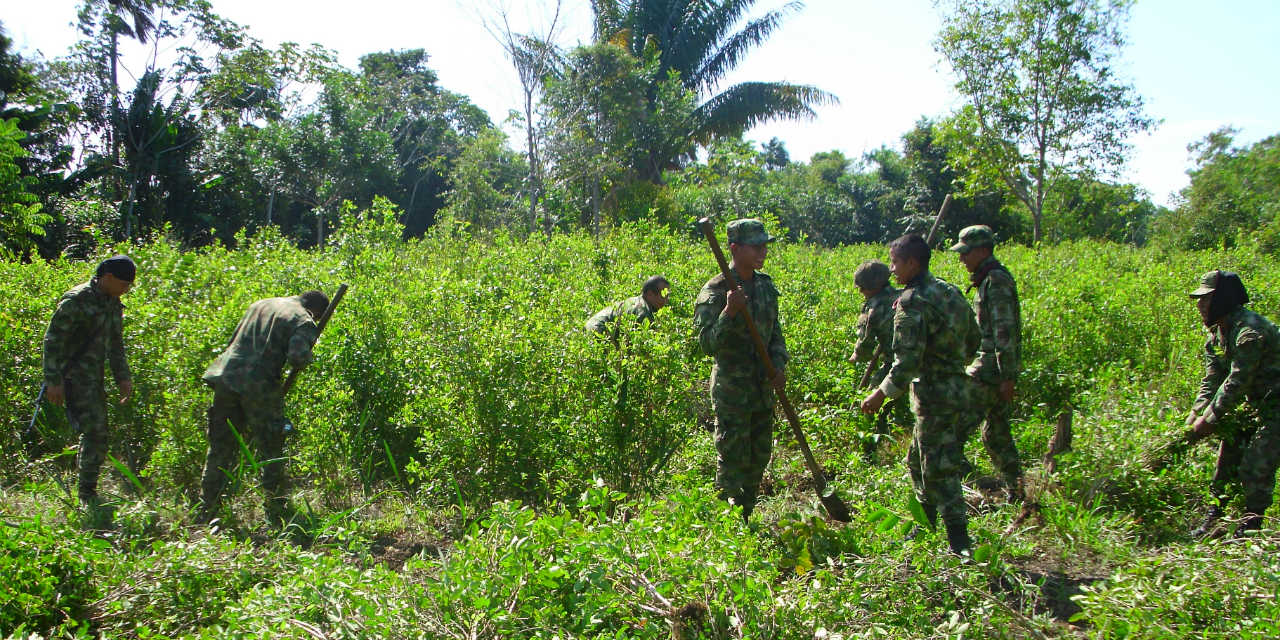
In a display of performative aggression that has become his hallmark, former President Donald Trump has unilaterally declared war on Colombia’s legitimate economy, framing it as a decisive blow against drug production. The reality, however, is a cynical manipulation of facts that promises to empower the very cartels he claims to oppose, shattering decades of nuanced U.S. foreign policy and leaving a trail of economic devastation in its wake.
The Trump Doctrine: “Tough on Drugs,” Tough on Allies
From the confines of Air Force One and the digital soapbox of Truth Social, Trump unleashed a volley of incendiary rhetoric, painting Colombian President Gustavo Petro as an “illegal drug leader” who “does nothing to stop” illicit production [1], [2], [4]. The accusations escalated to the absurd, with Trump labeling Petro a “lunatic” and the “worst president they’ve ever had” [5]. This theatrical denunciation was quickly followed by concrete threats: a slash in U.S. assistance to Colombia and the imposition of crippling tariffs on its exports [1], [2], [3], [6].
Trump’s rationale is deceptively simple: Colombia, designated by his administration as a nation that has “failed demonstrably” in upholding counternarcotics agreements [3], is to be punished for its perceived laxity. His message is clear: stop the drugs, or face economic isolation. Yet, the unvarnished truth reveals a far more complex picture than Trump’s crude caricature suggests. President Petro, far from meek, swiftly rejected Trump’s allegations, defending his administration’s efforts to combat narcotics and labeling Trump’s pronouncements as “rude and ignorant” [2], [4]. The exchange marks a dangerous escalation of friction with what has historically been one of Washington’s closest allies in Latin America [1], [2].
Dismantling Decades: A Reckless Retreat from Strategy
For over a quarter-century, U.S. strategy in Colombia has been built on a foundation of engagement, investment, and the understanding that trade is a powerful tool for economic development and, crucially, a bulwark against coca cultivation. The premise was straightforward: empower legal economies, provide farmers with viable alternatives, and reduce the reliance on illicit crops. This long-term, painstakingly constructed approach is now being casually dismantled by a wrecking ball of bluster.
Consider the fundamental flaw in Trump’s logic: tariffs do not, by any stretch of the imagination, hurt cartels. Cartels operate in the shadows, their profits untaxed, their supply chains unregulated. They thrive on instability and the desperation of those caught in the margins. Imposing tariffs on Colombian exports does not impact their illicit networks; it systematically punishes the legal economy—the very businesses and farmers striving to produce and export legitimate goods. These are the coffee growers, the flower exporters, the textile manufacturers who play by the rules, contribute to Colombia’s GDP, and employ countless citizens.
This isn’t “tough on drugs”; it’s a gratuitous assault on the legal foundations that provide alternatives to drug production. By making it harder for legitimate Colombian businesses to compete in the U.S. market, Trump’s tariffs threaten to make coca cultivation, despite its dangers, a more attractive economic proposition for struggling rural communities. This isn’t weakening the drug trade; it’s strengthening it by design.
The Economic Fallout: Farmers on the Brink
The immediate fallout of Trump’s proposed tariffs is alarmingly predictable. As one Colombian taxi driver, Ángel Duarte, presciently noted, “If Trump imposes more tariffs, many jobs will be lost, and many companies will go bankrupt” [4]. This isn’t hyperbole; it’s an economic forecast rooted in the brutal realities of international trade. Colombian goods become more expensive, demand from the U.S. market plummets, and legitimate businesses face insurmountable challenges. Factories close, farms go fallow, and unemployment skyrockets.
Who bears the brunt of this? Not the high-ranking cartel kingpins, but the ordinary Colombian citizens, particularly the rural farmers who are already navigating a precarious existence. When legal avenues for income are choked off, when the global market for their legitimate produce becomes inaccessible, the siren song of illicit crops becomes tragically louder. For many, cultivating coca is not a choice of illicit enterprise but a desperate measure for survival in the face of economic collapse. Trump’s policy doesn’t just cut off a revenue stream; it systematically funnels vulnerable populations back into the hands of drug traffickers.
This economic devastation is compounded by the threat to cut off U.S. funding. America has long been Colombia’s largest provider of economic and military assistance in the fight against drug trafficking [4]. This aid is not merely symbolic; it provides crucial resources for the eradication of illicit crops such as coca and opium poppies, and for the development of alternative livelihoods [4]. To remove this funding is to pull the rug out from under Colombia’s counter-narcotics efforts, leaving a vacuum that will inevitably be filled by those who profit from the illicit trade.
A Windfall for Illicit Networks
The notion that cutting off aid and imposing tariffs will somehow diminish drug production is not just mistaken; it is dangerously naive. Experts universally agree: U.S. anti-drug assistance to Colombia is “fundamental,” and cutting these resources benefits no one in the fight against the cocaine trade [7]. Without these crucial funds, Colombia’s capacity for interdiction, eradication, and providing social programs that offer alternatives to coca farming will be severely crippled.
This is not a victory for American taxpayers or a blow to drug lords. It is a strategic gift to criminal organizations. When the legal economy is hobbled, cartels face less competition for labor. When government resources for anti-drug operations dwindle, their operational risks decrease. When diplomatic relations fray, cooperation on intelligence sharing and cross-border enforcement becomes more difficult. Every step Trump takes to isolate Colombia economically and politically inadvertently strengthens the very networks he claims to be targeting. He is not fighting the drug war; he is, quite literally, creating conditions for the drug trade to flourish unchecked.
A Legacy of Misguided “Toughness”
Trump’s aggressive posture towards Colombia is not about effective drug policy; it is about political theater, designed to project an image of “toughness” without any genuine understanding of the complex geopolitical and socio-economic realities on the ground. It treats a sovereign nation and long-standing ally as a rogue state, ignoring the intricate web of challenges Colombia faces in battling powerful criminal organizations.
The unvarnished truth is that this approach is counterproductive in the extreme. It threatens to undo decades of painstaking work, destabilize a key regional partner, and empower criminal enterprises at the expense of legitimate businesses and vulnerable populations. This isn’t just a misstep; it’s a deliberate act of self-sabotage, one that will echo through the cocaine trade for years to come. Ultimately, who benefits from Trump’s bluster? Certainly not the farmers trying to build a legal life, nor the American public seeking an end to drug flows. The clear beneficiaries are the cartel kingpins, for whom Trump’s policies represent an unexpected, lavish boon.
Sources & Footnotes
- https://www.npr.org/2025/10/20/nx-s1-5579661/trump-tariffs-aid-colombia-amid-clash-drugs-petro ↩
- https://abc7.com/post/trump-calls-colombias-petro-illegal-drug-leader-announces-tariffs-end-us-aid/18043388/ ↩
- https://www.reuters.com/world/americas/trump-calls-colombian-president-a-drug-leader-vows-end-payments-2025-10-19/ ↩
- https://www.cnn.com/2025/10/20/americas/colombia-fallout-trump-petro-feud-latam-intl ↩
- https://www.foxnews.com/politics/trump-doubles-down-colombia-crackdown-calls-petro-lunatic-vows-end-all-us-payments-over-drugs ↩
- https://www.dw.com/en/trump-ends-colombia-aid-over-drug-boom-as-colombia-accuses-us-of-violating-sovereignty/a-74414182 ↩
- https://insightcrime.org/news/behind-curtain-how-trump-spat-colombia-could-impact-anti-drug-ops/ ↩

Leave a Reply